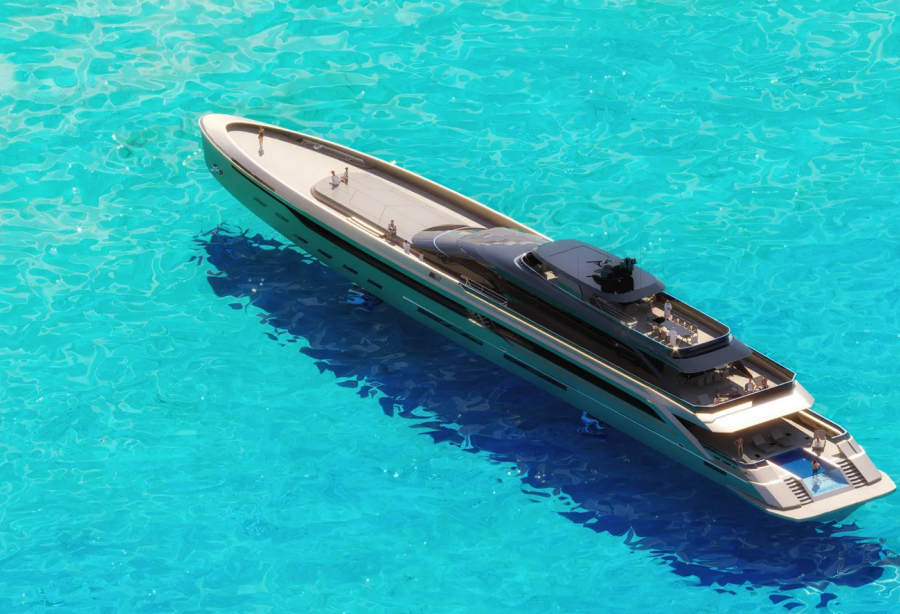MASK Architects Unveils ONYX H2-BO 85: Futuristic Hydrogen-Powered Superyacht Concept
Key Ideas
- Italian architecture firm MASK Architects reveals an innovative 85-meter superyacht concept, ONYX H2-BO 85, featuring a hydrogen propulsion system.
- The system combines seawater electrolysis and hydroelectric turbines to reduce fossil fuel dependency during short cruises.
- The design includes eco-conscious materials, hydroelectric turbines for power, and a focus on long-term cost savings amidst environmental regulations.
- While promising, challenges like energy-intensive electrolysis and storage limitations hinder wider adoption of hydrogen propulsion in the maritime industry.
Italian architecture firm MASK Architects has unveiled its latest superyacht concept, the ONYX H2-BO 85, which incorporates an advanced hydrogen propulsion system. The 85-meter vessel aims to reduce dependency on fossil fuels by utilizing seawater electrolysis and hydroelectric turbines to generate power, with a focus on short cruises. The innovative system extracts seawater, purifies it through filtration and desalination, and then undergoes electrolysis to separate hydrogen and oxygen. The produced hydrogen is utilized as fuel for engines, generators, or fuel cells, with any excess stored for backup power.
The design of the yacht features a sleek and narrow profile influenced by sport yachts, boasting contemporary interiors that prioritize eco-conscious materials. Leisure areas onboard include a sunbathing foredeck, al fresco dining space on the sundeck, and an aft swimming pool. Additionally, the hydroelectric turbines capture kinetic energy from the surrounding water, potentially eliminating the need for large fuel reserves.
The concept of the ONYX H2-BO 85 comes amidst stricter environmental regulations in the maritime industry. While hydrogen propulsion offers zero local emissions, challenges such as the energy-intensive electrolysis process persist. The studio behind the project recommends supplementing the system with renewable energy sources like solar panels for added sustainability.
The unveiling of this hydrogen-powered superyacht joins a wave of initiatives aiming to develop cleaner propulsion systems for luxury vessels, with concepts exploring batteries, fuel cells, and alternative fuels. Despite the promise of hydrogen for maritime applications, infrastructure limitations and storage challenges pose significant obstacles to widespread adoption. The project signals progress with ongoing technical development, though the absence of sea trials or construction timelines leaves the concept in the realm of futuristic design possibilities.
Topics
Power
Renewable Energy
Future Technology
Marine Engineering
Environmental Regulations
Sustainable Design
Luxury Vessels
Latest News
